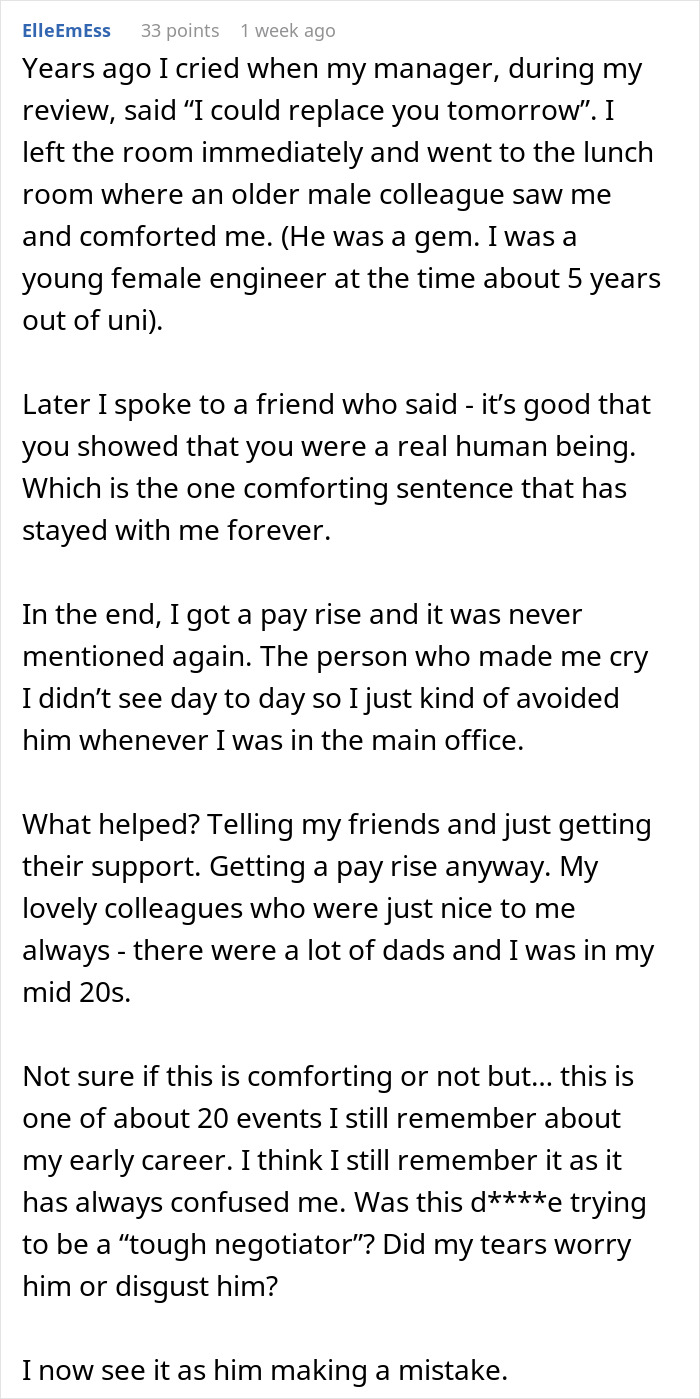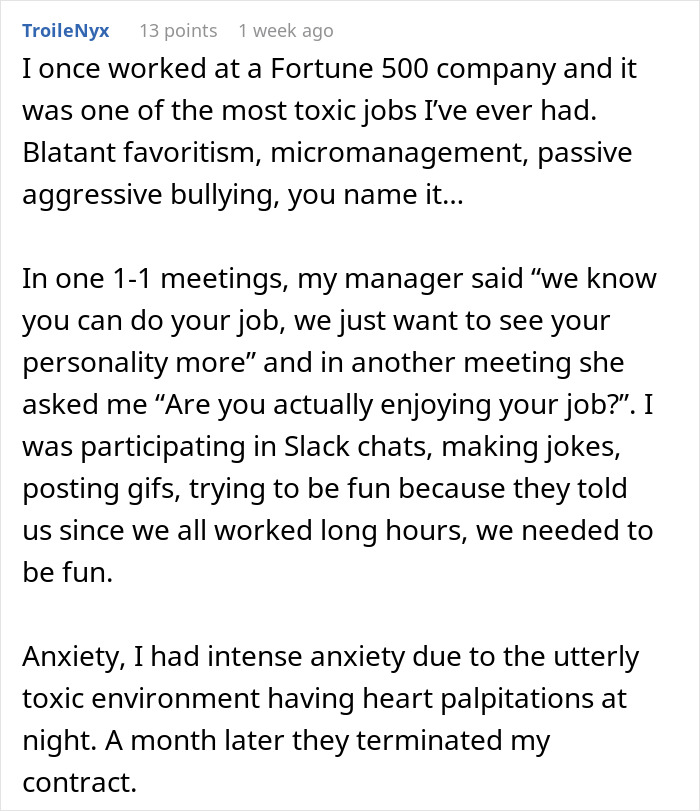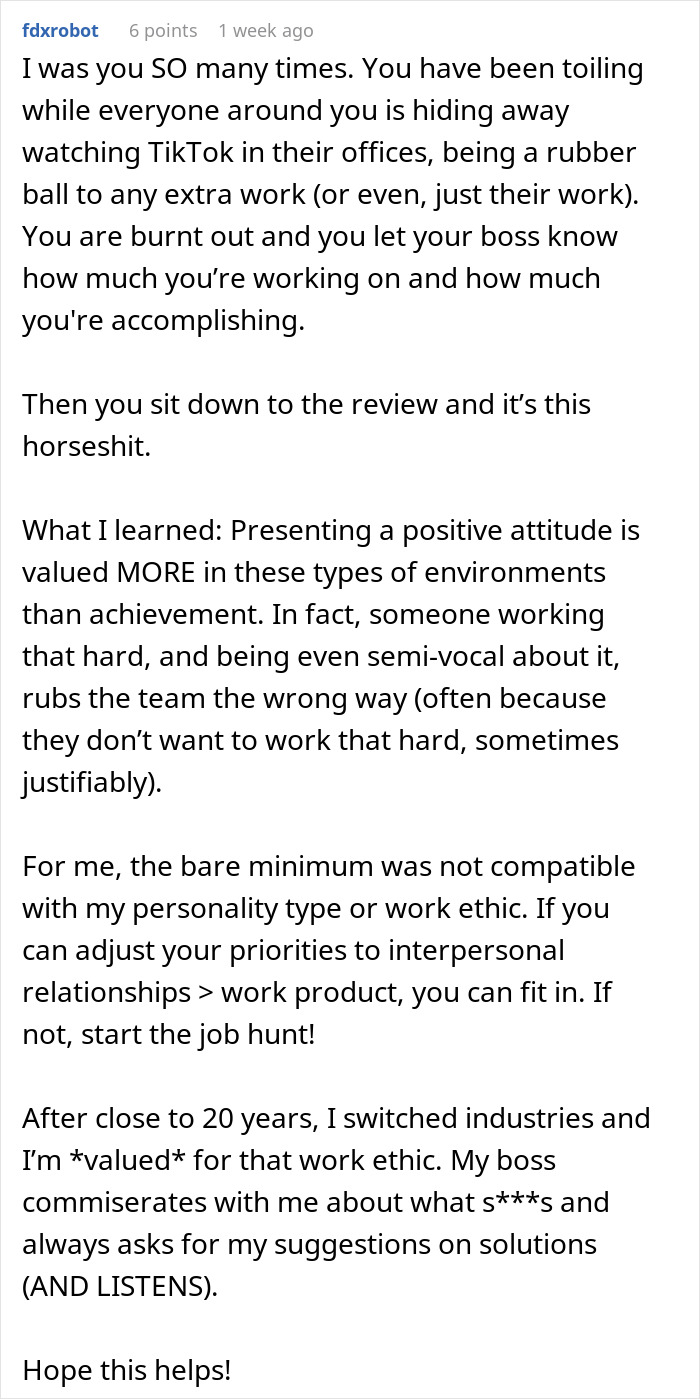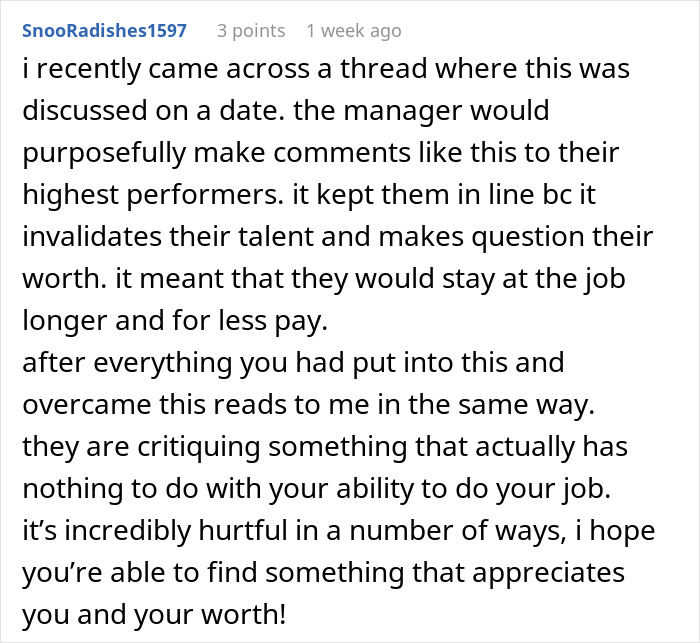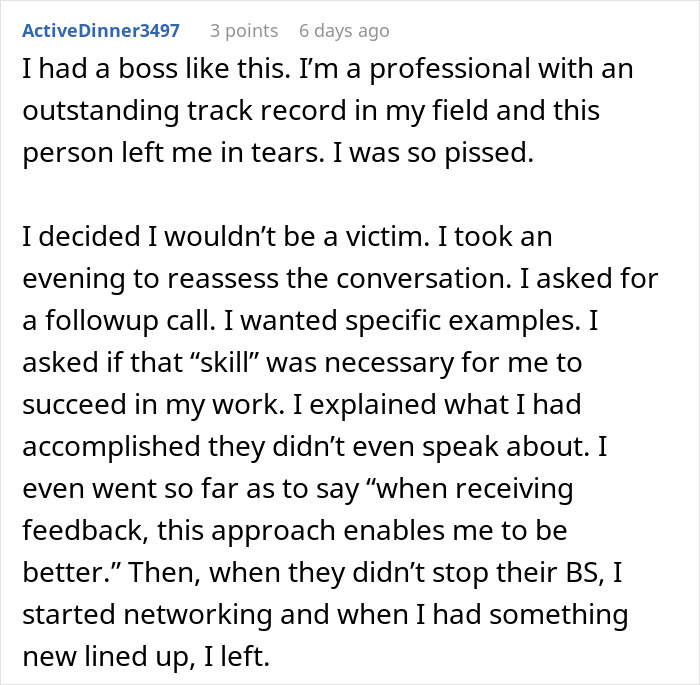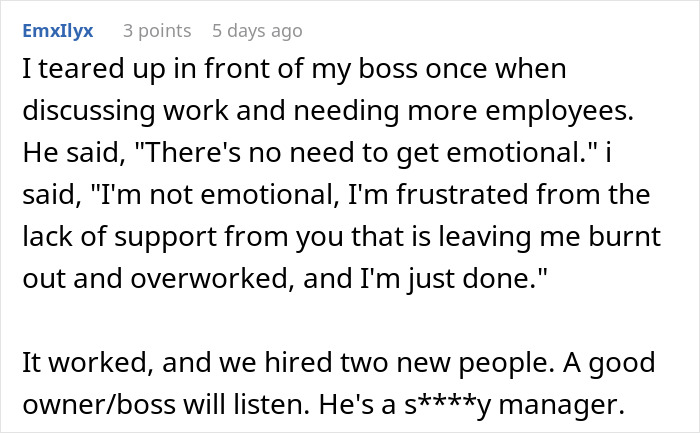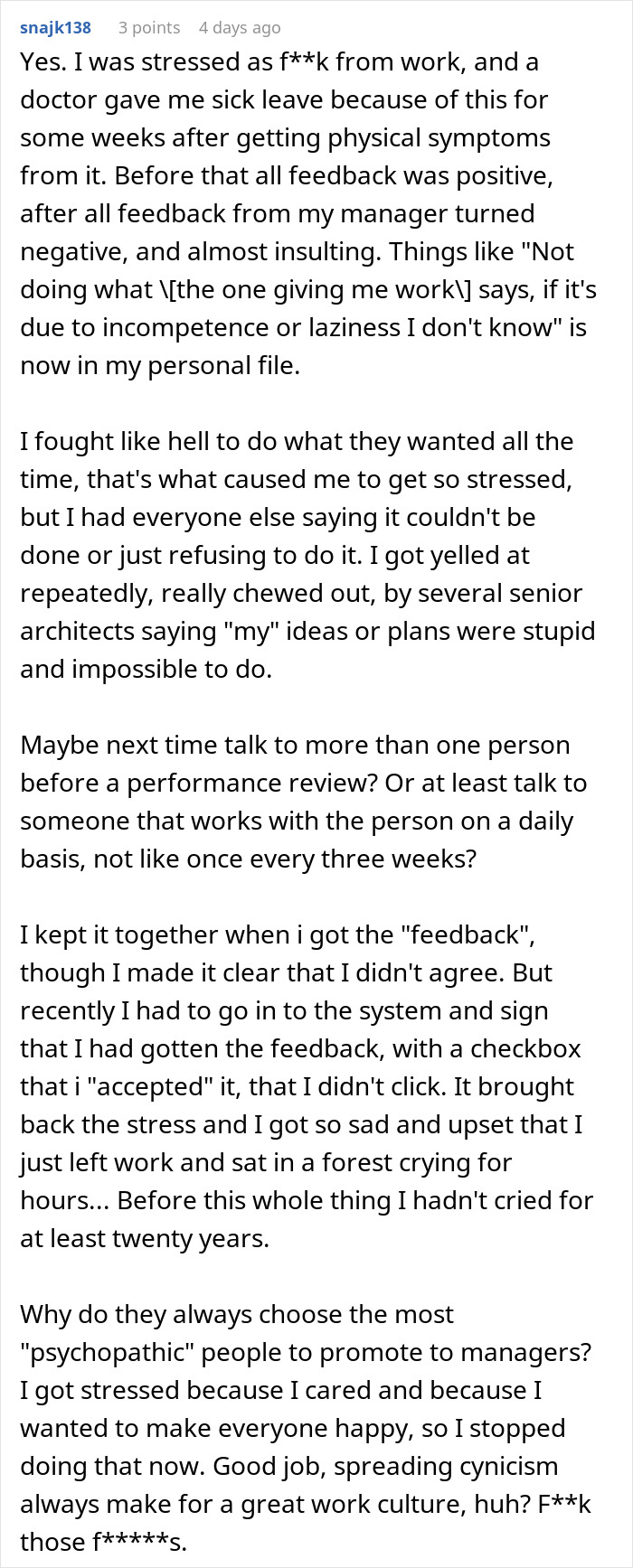Honestly, it feels like these days, if you have a job, you’re bound to get burnt out at some point. It’s practically a given—and it’s awful.
But when this Redditor walked into their performance review, carrying a spotless record and hours of extra work on their shoulders, they didn’t get a single word of understanding from their manager. Instead, they were told to “show more enthusiasm” and simply push through the exhaustion.
That “feedback” brought them to tears. Read the full story below.
The employee showed up to their performance review already burnt out from all the extra work

Image credits: GroundPicture / envato (not the actual photo)
But instead of offering support, the manager told them to “show more enthusiasm,” leaving them in tears
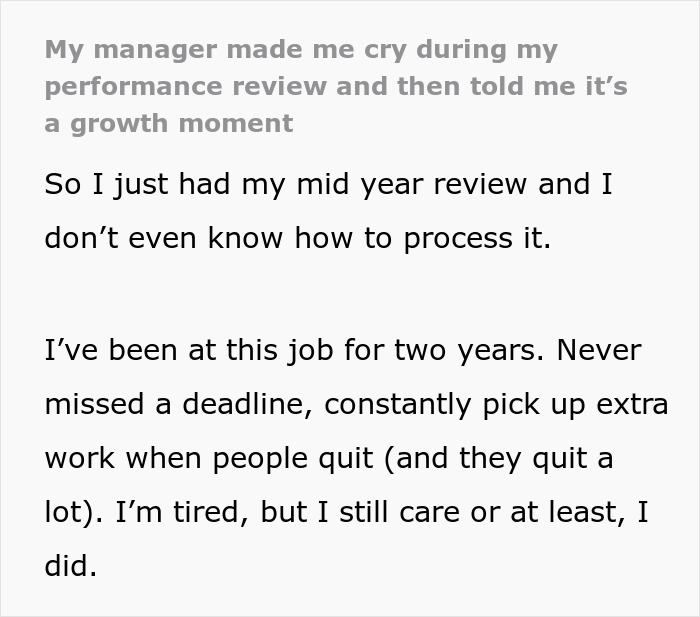
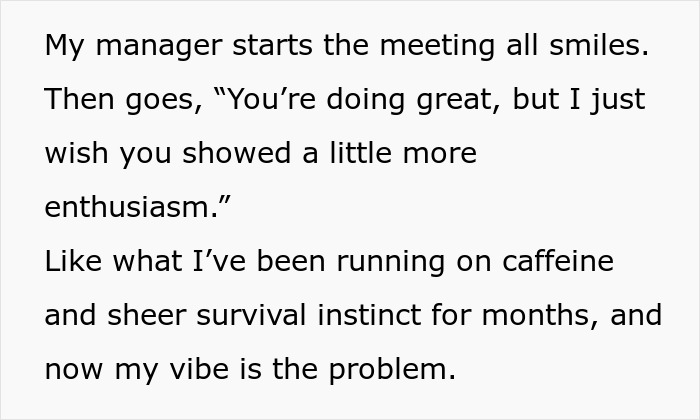
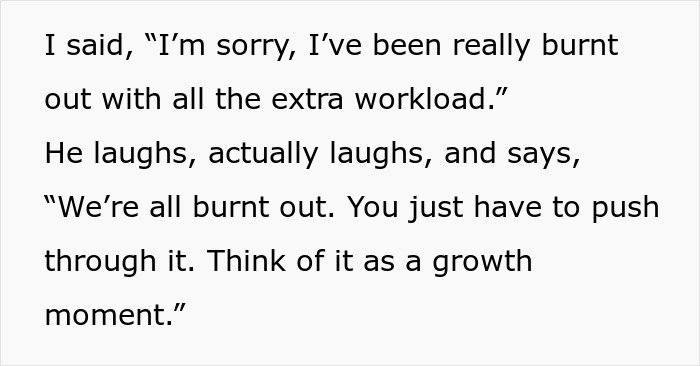
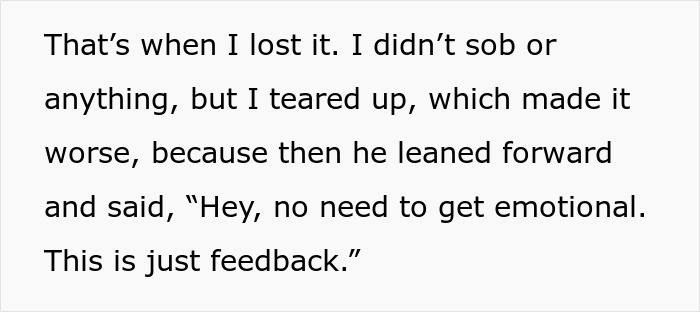

Image credits: wirestock / envato (not the actual photo)
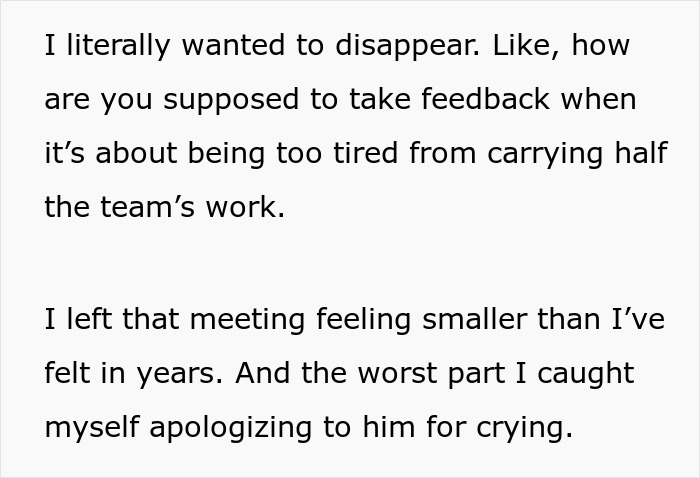
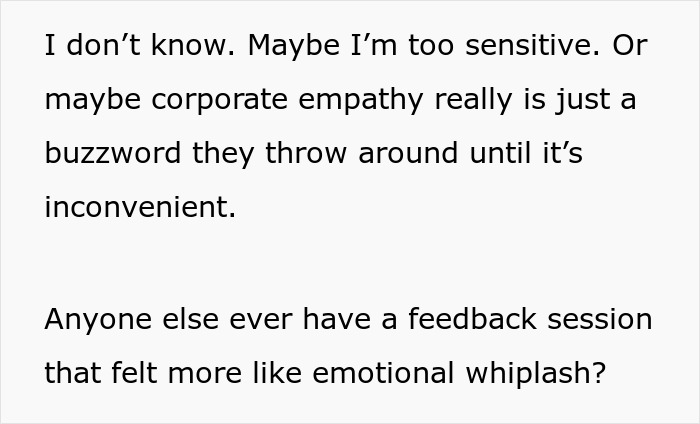
Image credits: BandicootUpbeat3227
When employees burn out, businesses suffer right along with them

Image credits: StreetOncamara_From_Twenty20 / envato (not the actual photo)
When the worker’s manager said, “We’re all burnt out,” he might not have been entirely wrong. Burnout really is everywhere, but that doesn’t mean the answer is to just toughen up and “push through.” In fact, that mindset is part of the problem.
The number of people struggling with burnout has never been higher, notes Kandi Wiens, EdD, a senior fellow at the University of Pennsylvania Graduate School of Education and author of Burnout Immunity, in an article for Harvard Business Review. She points out that it’s now hitting people at younger ages too, and the consequences are getting more severe.
According to the Stress in America survey, 67% of adults aged 18 to 34 say stress makes it difficult to focus, 58% describe their daily stress as “completely overwhelming,” and nearly half admit it gets so bad that most days they can’t function at all.
No matter your age, burnout is a serious issue. It’s defined by exhaustion, negativity toward one’s job, and reduced performance—and it’s linked to sleep problems, heart disease, depression, absenteeism, and job dissatisfaction.
Burnt-out employees also make more mistakes and tend to lose creativity and motivation. Gallup even estimates that low engagement, one of burnout’s main symptoms, costs the global economy $8.8 trillion—about 9% of the world’s GDP.
So when the manager in this story suggested their employee “show more enthusiasm” as a fix for burnout, well, it’s clear that approach doesn’t work out for businesses either.
Sure, on an individual level, most of us try to cope in small ways: lighting a scented candle, taking a long shower, squeezing in a bit of “me time,” or trying to reshuffle our responsibilities. But experts say the real responsibility lies with companies.
Kaitlin Howes, an HR business partner at Reward Gateway, told SHRM that recognizing and addressing burnout is vital for keeping workplaces healthy, not only for employees themselves but for entire organizations.
“Organizations should always be looking for new ways to engage their workforce to promote retention and improve well-being,” she said.
Research from SHRM backs this up. Workers who feel a strong sense of belonging are 2.5 times less likely to experience burnout, and those who feel they can be their authentic selves at work are also 2.5 times less likely to feel emotionally drained.
Another powerful tool for managing burnout, Howes explained, is showing genuine appreciation.
“Organizations should encourage leadership and managers to offer regular and specific recognition for their employees’ hard work and accomplishments,” she said.
Still, for anyone already feeling on edge, there are steps to take on a personal level too. Terri Bogue, the chief operating officer of the Indiana-based technology company Thor Projects, shared during the SHRM Annual Conference & Expo 2022 that preventing burnout starts with balance and perspective.
She advised people to stay optimistic during challenges, reframe how they see expectations, give themselves credit, eat well, exercise, take mental health days, seek support when needed, and learn to set limits.
“We need to make sure our expectations, perceptions, and results match,” Bogue said. “When they don’t, that’s when we experience burnout.”
Many readers shared words of encouragement and advice

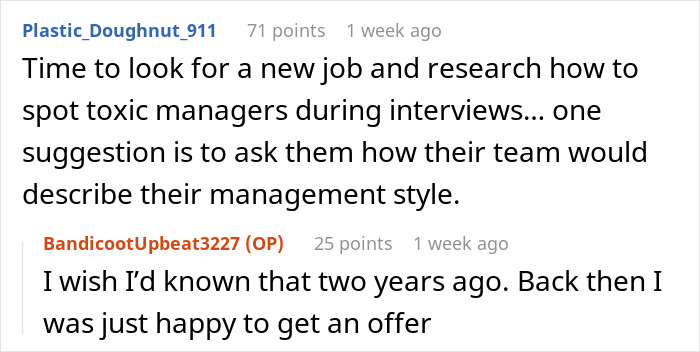
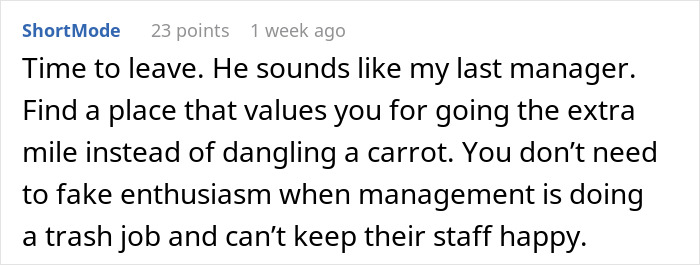

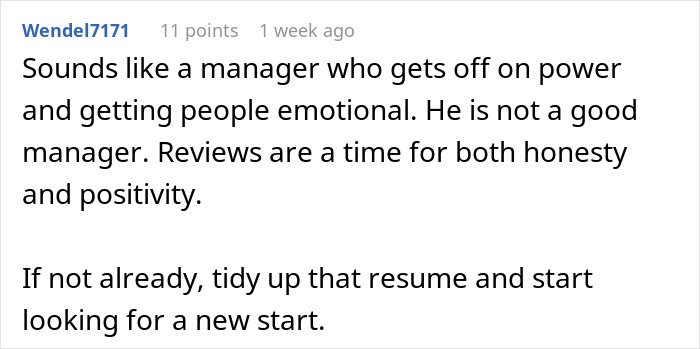
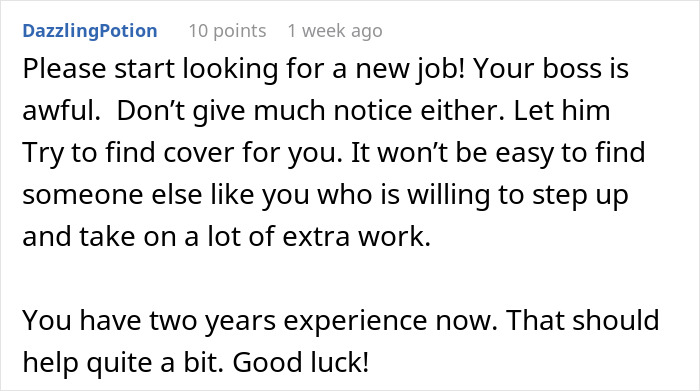
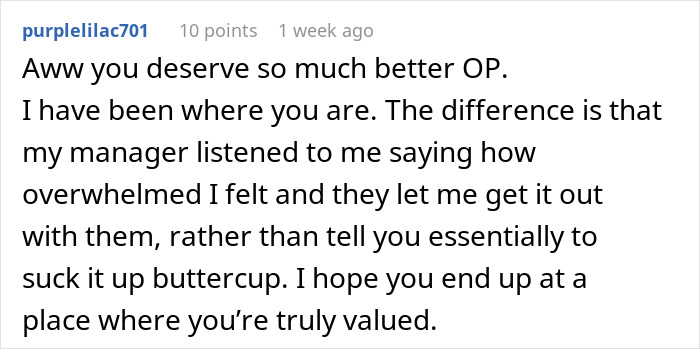
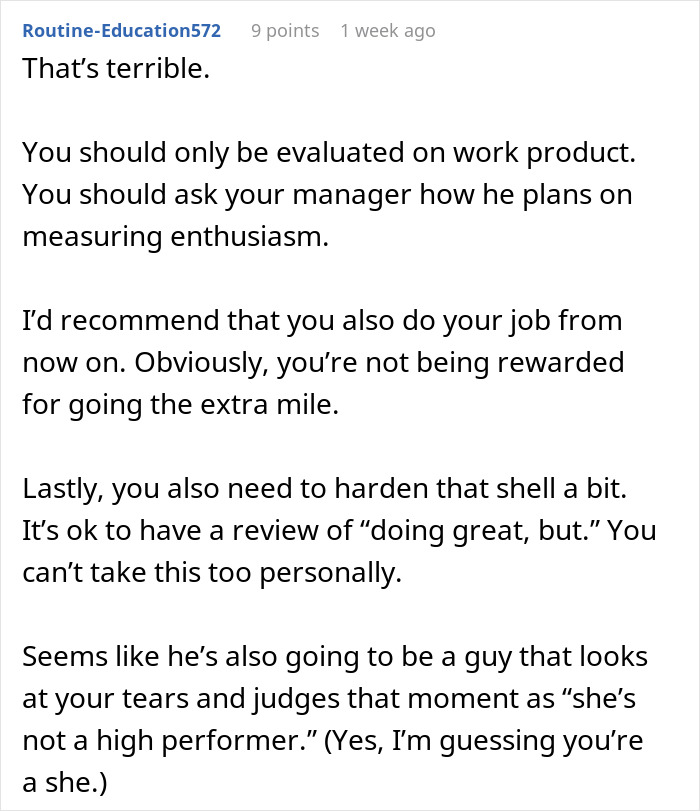
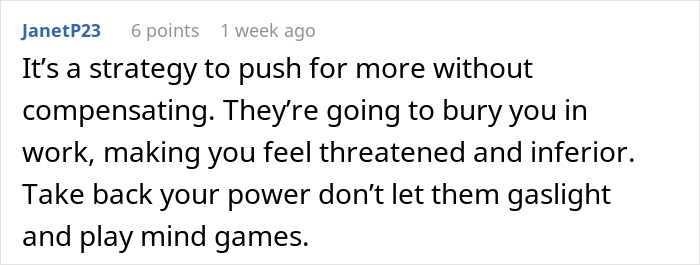
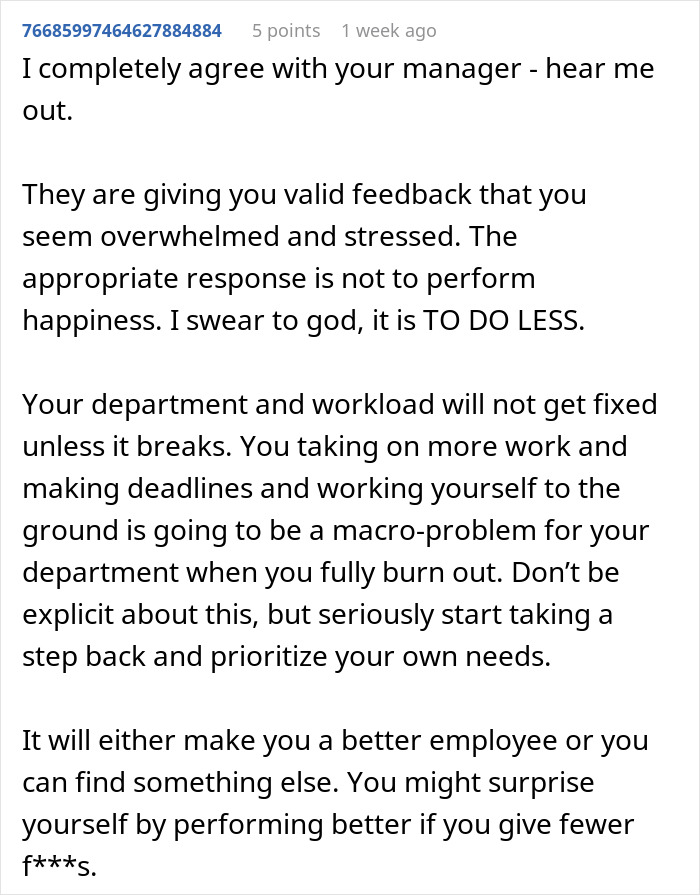
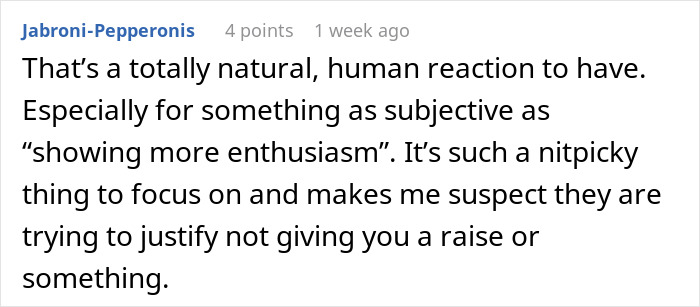
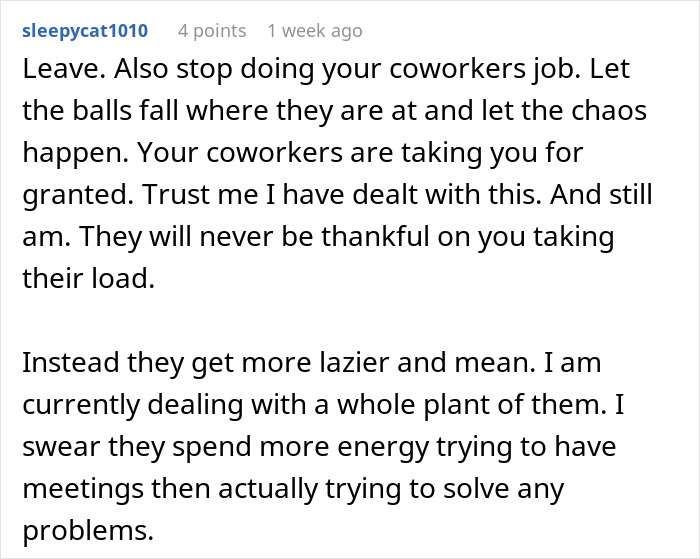

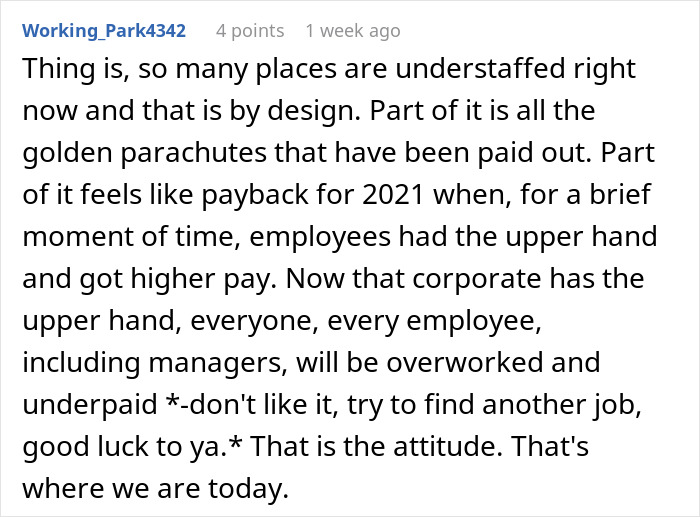
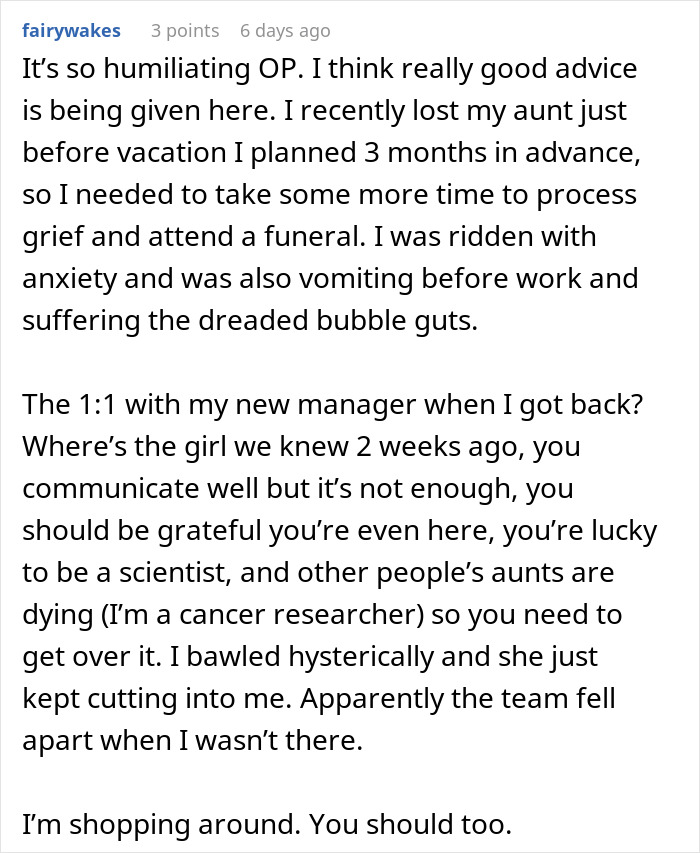
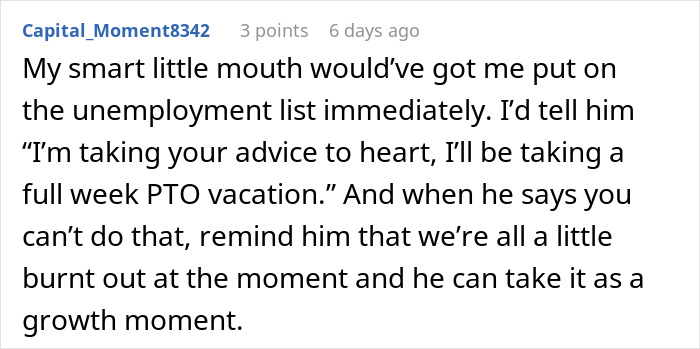
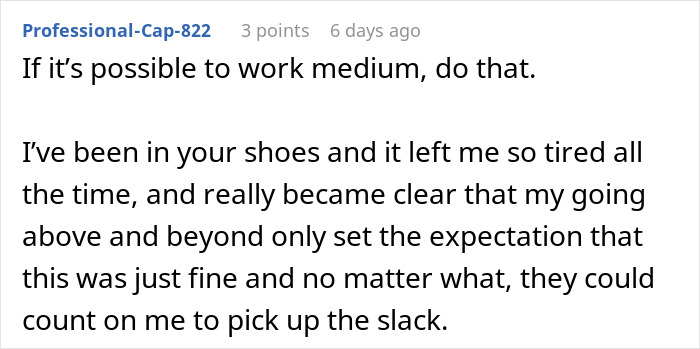
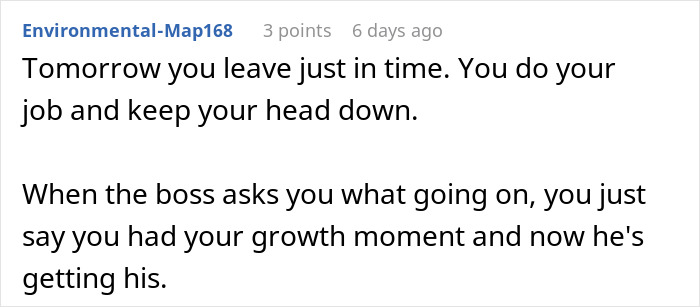
While others chimed in with similar experiences
